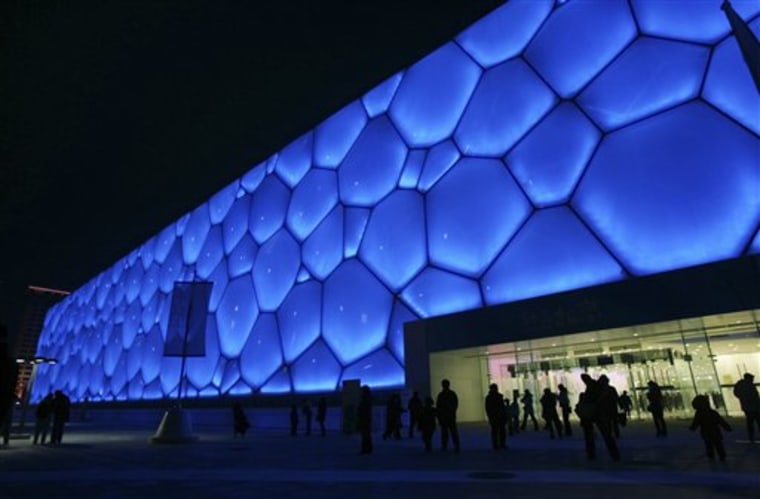With the Olympics six months away, air pollution is taking some luster off the glistening venues and the meticulous planning aimed at controlling every facet of the Beijing Games.
Athletes and coaches are talking openly about the dirty air. Dozens of countries are setting up pre-Olympic training camps in Japan or South Korea. The powerful American swim team is basing itself far away in Singapore. There are plans to test facemasks — if not in competition, at least during training and leisure time.
Beijing has struggled to reduce the sooty mix of ozone, carbon monoxide, sulfur dioxide and nitrogen dioxide that often blankets the city at a level five times higher than the World Health Organization's safety standard.
"It's not easy,'' acknowledged Deng Yaping, the four-time Olympic gold medalist in table tennis and the deputy director of the Athletes' Village, which will house 17,000 athletes and officials. "The environment is not easy. And it's not short term so that you can see the results.''
A member of the Communist Party and the government's top advisory body, Deng said the pollution was a "world problem.'' Like many Chinese, she pointed out that Olympics in Los Angeles and Athens were also prefaced by pollution fears.
"I'm sure we will make every possible effort to make a cleaner environment for all the athletes,'' added Deng, who was voted China's top female athlete of the 20th century.
Officials aren't saying how they'll solve the problem when the games open Aug. 8. Factories will close, dust-spewing construction will slow and more than a million vehicles are sure to be banned. The one-party state will surely marshal its vast resources or risk a public relations disaster.
Marathon legend might not show
But not everybody is convinced, including the world's greatest distance runner.
"If there are serious problems, of course ... it's better not to come,'' Haile Gebrselassie said on a visit this week to Beijing. "My priority if just to live and keep my health.''
The marathon world record holder said he it's possible he may skip the Olympics. If he comes, he's undecided whether he'll run the marathon or the 10,000 meters.
"They (organizers) are trying to do something. That's OK,'' he said. "The pollution is the most important thing. Actually, when we talk about the pollution, it's not only during the Olympic Games. What about the people here? They are really suffering.''
Olympic tennis champion Justine Henin pulled out of a tournament in Beijing five months ago because the pollution aggravates her asthma, and she may avoid the games.
Veronica Campbell-Brown of Jamaica, the defending Olympic 200-meter champion and world 100-meter champion, explained her strategy on a visit.
"Just stay away until it's really time to start competing,'' she said.
The International Olympic Committee has pressed China for months to solve the problem, and president Jacques Rogge has warned that some endurance events would be postponed if the air is bad.
"A number of contingency plans have been outlined and some air quality data reported to us,'' IOC spokeswoman Giselle Davies said. "But we are still encouraging the organizing committee to share further data with us so that we can gain a deeper understanding of the efficacy of the plans.''
Davies said recent test events had been held "without any major complaints or incidents.'' However, this is not completely accurate with several boxers, cyclists and triathletes having griped about the air.
"We have reason to believe that the issue, although challenging, will be managed appropriately by our Chinese hosts,'' Davies added.
Pollution through the 'Water Cube'
The Olympic equestrian venue is Hong Kong, which also has bad smog as well as stifling heat and humidity. The Swiss dressage team has said it plans to stay away, and Canadian and German riders have talked about pulling out.

No one disputes the grandeur of the venues and Beijing's astounding $40 billion facelift, which includes new roads, subway lines and a myriad of skyscrapers.
The $200 million National Aquatics Center, known as the Water Cube, opened last week to rave reviews.
"The pool's out of the world,'' high-ranking IOC member Kevan Gosper said. "You'd think it was sent in from another planet.''
One of the few criticisms was the see-through honeycomb facade, which showed the grit from the city pollution.